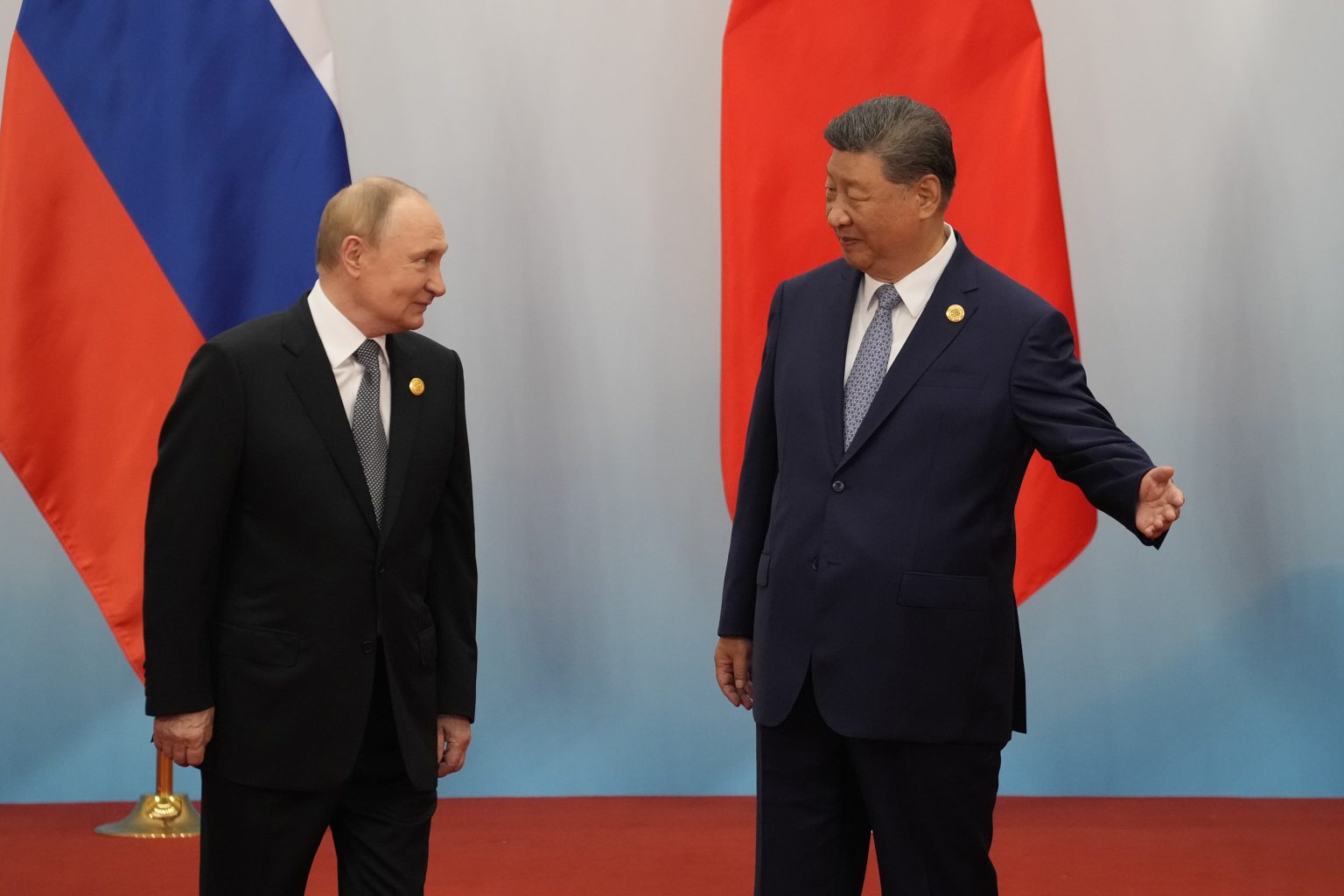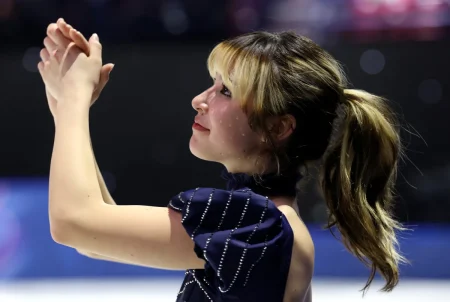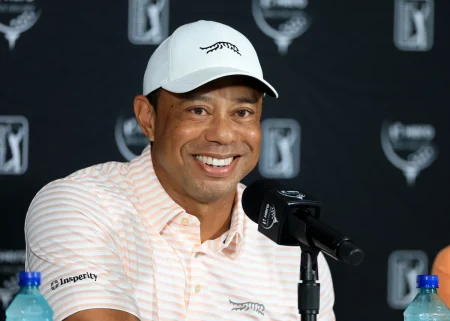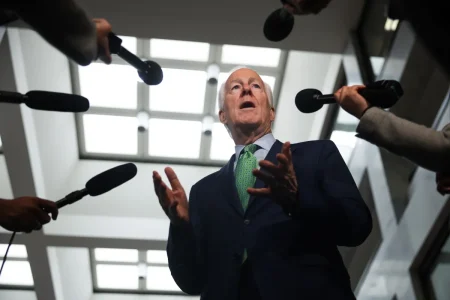The Strategic Alliance: Xi and Putin’s Growing Bond in a Changing World Order
In a significant diplomatic meeting that underscores the evolving geopolitical landscape, Chinese President Xi Jinping and Russian President Vladimir Putin convened for talks on Tuesday, demonstrating a friendship that continues to deepen amid shared concerns about American global influence. The warmth between these leaders was evident as Xi referred to Putin as his “old friend,” while Putin reciprocated by addressing Xi as “dear friend” and describing their relationship as having reached an “unprecedentedly high level.” This personal rapport reflects a broader strategic partnership that has significant implications for international relations, particularly as both nations seek to challenge what they perceive as U.S. dominance in global affairs. China has become a crucial economic partner for Russia, especially in the face of Western sanctions, purchasing Russian oil on a large scale and helping to sustain the Russian economy despite international isolation following its actions in Ukraine. Although China maintains that it plays no direct role in the Ukraine conflict and has expressed willingness to contribute constructively to peace efforts, its economic support has undeniably provided Russia with a vital lifeline.
The meeting precedes a major symbolic event scheduled for Wednesday – a grand Chinese military parade in Beijing commemorating the 80th anniversary of Japan’s surrender and the official end of World War II in the Pacific. This parade holds significant historical and contemporary relevance, as it will feature China’s most advanced military hardware on display through Tiananmen Square. The attendance list itself speaks volumes about current geopolitical alignments – while Xi and Putin will be joined by North Korea’s leader Kim Jong Un, notably absent will be leaders from the United States and other major Western powers. During Tuesday’s meeting, Xi specifically highlighted China and Russia as “the key victor countries of World War II,” a framing that emphasizes their historical importance and current partnership. This gathering follows the Shanghai Cooperation Organization (SCO) summit held in Tianjin on Sunday and Monday, which also included Indian Prime Minister Narendra Modi and several other leaders who share varying degrees of skepticism toward American influence and President Trump’s tariff policies.
The SCO summit provided Xi with a platform to articulate his vision for what he terms the Global Governance Initiative – essentially a blueprint for a multipolar world order that would diminish U.S. global influence. Speaking to the assembled leaders, Xi delivered what observers interpreted as a thinly veiled critique of American foreign policy, condemning what he described as “Cold War mentality, hegemony and protectionism” that continue to “haunt the world.” His statement that “global governance has come to a new crossroads” signaled China’s ambition to reshape international relations according to principles that would dilute Western, particularly American, dominance. Xi specifically cautioned against “double standards” and rules imposed by “a few countries,” emphasizing that the United Nations should remain central to global governance structures rather than systems dominated by Western powers. This vision directly challenges the post-World War II international order that has largely been shaped by American leadership and values.
In his address, Xi articulated principles that would fundamentally transform global power dynamics, stating, “We should maintain that all countries, regardless of size, strength and wealth, are equal participants, decision-makers and beneficiaries in global governance.” This framing positions China as a champion for developing nations and smaller powers that feel marginalized in current international structures. Xi further emphasized the need to “promote greater democracy in international relations and increase the representation and voice of developing countries,” language that purposefully adopts Western democratic terminology while redefining it in a context that challenges Western hegemony. This rhetoric aligns closely with Putin’s frequent characterization of the United States as an “aggressive Cold War hegemon” determined to contain rivals like Russia and China – a narrative that resonates with many nations feeling pressured by American economic and military power. In his SCO speech on Monday, Xi reinforced these themes by advocating for “an equal and orderly multipolar world and a universally beneficial and inclusive economic globalization” that would make “the global governance system more just and equitable.”
The strategic significance of this partnership extends beyond rhetoric. While China carefully maintains that it plays no direct role in Russia’s Ukraine conflict, its economic support has been crucial for Moscow. By purchasing Russian oil and maintaining trade relations despite Western sanctions, China has helped Russia weather international isolation. This economic lifeline demonstrates the practical dimensions of their alliance – China gains access to discounted energy resources while Russia secures vital revenue streams that Western sanctions attempted to cut off. Beyond bilateral benefits, both nations gain leverage in their respective challenges with the West. For Russia, Chinese support provides economic stability that allows it to sustain its military operations despite Western pressure. For China, the partnership with Russia offers strategic depth in its increasingly tense relationship with the United States, particularly regarding Taiwan and territorial disputes in the South China Sea.
Wednesday’s military parade in Beijing will serve as a powerful visual representation of this evolving alliance and its place in the broader international landscape. With leaders from 26 countries in attendance – prominently featuring Xi, Putin, and North Korea’s Kim Jong Un – the event is designed to showcase not only China’s military advancements but also its growing diplomatic influence. The parade represents a symbolic statement about China’s vision for a new world order where power is more distributed among multiple centers rather than concentrated in Washington. The display of advanced Chinese weaponry sends a message about China’s technological capabilities and military modernization, while the assembled foreign dignitaries demonstrate Beijing’s ability to build coalitions beyond Western alliances. For Xi and Putin, this public demonstration of unity amid tensions with the West reinforces their narrative that the era of uncontested American global leadership is giving way to a more complex, multipolar system where China and Russia will play increasingly influential roles in shaping international norms, institutions, and power dynamics in the coming decades.













